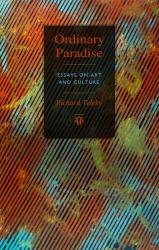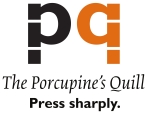
The essays in Ordinary Paradise muse on what it means to be engaged with literature, music, film and the visual arts, and celebrate the extraordinary power that creative accomplishment can have on our daily lives.
About the Book
"While representing the best of human endeavor, works of art have become ordinary features of our lives, familiar and reliably present," writes Richard Teleky. "They are, however, extraordinary. So extraordinary, in fact, that in themselves they are a kind of paradise."
In Ordinary Paradise, acclaimed author, critic and editor Richard Teleky considers a variety of artistic forms—from novels and poems to paintings and sculptures to movies and musical compositions—in celebration of the creative achievements that surround us and affect our daily lives. He examines, as well, some of the challenges and tensions in any artist’s life.
The essays in Ordinary Paradise challenge conventional wisdom and exemplify a dynamic and lively critical approach, pointing out troubling trends in contemporary appreciation of art and culture. They reveal the rewarding complexities of the demanding art of translation, the nostalgic power of re-reading in provoking self-assessment, and the fraught connection between language, silence and identity as they relate to marginalized voices. Teleky immerses himself into ideas of truth, beauty and humanity, and in so doing, provides a compelling exemplar for engaging with contemporary culture and learning the innumerable lessons that artistic accomplishments have to teach us.
Praise for Ordinary Paradise
‘The idea that the extraordinary quickly becomes ordinary is a simple one but easy to overlook. The book is a thoughtful meditation on being present in the beauty around us, as well as interrogating troubling trends in the way art is currently appreciated and evaluated. And on the other side of the creative coin, Teleky also examines certain challenges and tensions in the lives of artists.
‘From what re-reading can tell us about ourselves to the connection between language and marginalized voices, this is a mature and intelligent rumination on the nature of truth and beauty through a concrete and relatable lens.’
—Open Book
Read an Excerpt
Suddenly, it seems, everyone is turning sixty. The baby boomer generation—born after World War II, between 1946 and 1960—has had a profound impact on North American cultural, economic and political life, and they’re about to be at it again. Over dinners, at parties, in busy business corridors, they’re reassuring each other that ‘Sixty is the new forty.’ Well, good luck. But how will the publishing world face the onslaught of spending that the boomers are going to enact? What will happen to serious and popular fiction, and books in general? What, in the end, will matter to the boomers, and what might they change?
I ask these questions because I’m part of the boomer generation too, and I’ve completed a novel, Winter in Hollywood, that looks directly at some of the issues about aging that the boomers—and all of us, eventually—have to face. It’s a truism that our culture likes to emphasize youth, from the stories of young love that dominate TV, the movies, and popular culture in general, to ads and articles hawking Viagra, Botox, and plastic surgery. Age itself has come to be seen as something unnatural, to be avoided at almost any cost. Or, as the 75-year-old heroine of my novel remarks, while walking down a street of fancy shops in Los Angeles: ‘age hid itself—bad news, bad luck.’ The reasons for our fear of aging are complex and perhaps ancient. And it’s ironic that the boomers, who were always youth obsessed, now have to put their own stamp on aging. Can book publishers and booksellers help humanize this process, and offer an alternative to fear and loathing? There has to be more than Andrew Weil’s bestseller Healthy Aging, sensible as it may be.
One of the most popular non-fiction books of 2005 was Joan Didion’s The Year of Magical Thinking, a memoir about the death of her husband, the novelist John Gregory Dunne, and the fatal illness of their daughter. Apparently everyone in the book business was surprised by Didion’s runaway success, as if no one had noticed the boomers at the gates. One newspaper critic, commenting on the phenomenon, concluded rather too cleverly, ‘Translation: Aging boomers are becoming interested in their own mortality.’ The snide tone here is common when aging and mortality rear their twin heads. Yet when Annie Leibowitz photographed Didion for Vanity Fair, she avoided the soft focus often reserved for elderly celebrities (Didion was 71) and instead recorded the novelist in her wrinkled glory, with claw-like hands, in an image that evokes famous portraits of Karen Blixen (Isak Dinesen) made by Richard Avedon and Cecil Beaton several years before her death, at age 77. The fierce expression on Didion’s face will fool no one who has read her memoir. This is a woman shocked by mortality hitting so close to home. Despite years of bearing witness to late 20th-century injustice and angst, Didion, it seems, never quite expected to be part of the passing scene of suffering.
[From "On Books and Baby Boomers"]
About the Author
Richard Teleky is an author, editor and educator who has published a dozen books of poetry and prose (both fiction and non-fiction), including most recently The Blue Hour (Exile Editions, 2017) and The Hermit in Arcadia (Exile Editions, 2012). His novel The Paris Years of Rosie Kamin (Steerforth, 1998) won the Harold Ribalow Prize. He is a professor in the Humanities Department of York University and lives in Toronto.
You Might Also Like
Buy in Print
To get this book in print, order from your favourite indie bookseller, or
buy online from our distributor, UTP »

